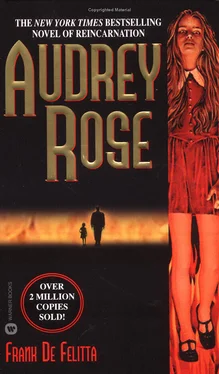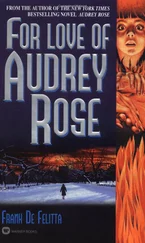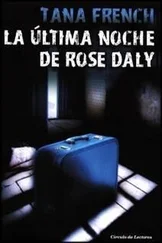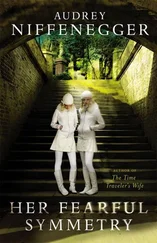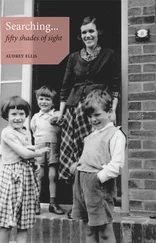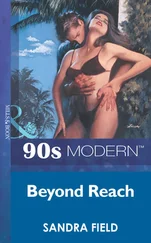The time was not quite seven, and they were alone in the breakfast room. Outside was one of those infrequent mornings in midwinter when the sun seems to shed a warm and kindly light over the whole world. Ivy thought it would be fun having a picnic on the beach, and though it meant deserting her post at the telephone, Janice was quick to agree, hopeful that the therapy of salt air and sun-baked sands would help to calm her flesh and spirit. Her mind was a tempest of thoughts and conjectures, a whirling confusion of half-formed fears centering on the eye of a single fact: Ivy had packed her bag without realizing it. Why? What did it mean? If the act was beyond Ivy’s control, then Audrey Rose must have been the motivating force behind it. If so, was it merely a symbolic statement, or did it have a practical application? A packed bag could mean but one thing. A trip. Was Audrey Rose pushing Ivy back to the city? Back to home—and Hoover? Was this her scheme? If so, how had she thought to accomplish it? A girl of ten—alone—with no money and no real knowledge of travel? The questions dizzied her, bringing a shocked, curling smile to her lips and a look of dumbstruck wonderment to her eyes. If Bill were privy to her fears, he would certainly have her locked up.
Her fears were to be confirmed later that morning.
There were gray clouds and stinging gusts of wind at the beach. Janice was sitting on the blanket, watching Ivy at the shoreline pitching shells into the boiling surf, when a sudden strong gust blew a speck of sand into her eye causing it to water furiously. Her hand felt its way to her tote bag for Kleenex, and after groping about and finding none, she looked down and discovered she was rummaging about in Ivy’s tote bag by accident.
She came upon the train schedule almost at once—a printed leaflet offered by the New York, New Haven and Hartford, listing train arrivals and departures between New York and Westport. The pain in her eye forgotten, Janice hurriedly continued to go through the tote bag, darting surreptitious glances at Ivy still at the water’s edge with her back turned, and drew out the blue satin hand-painted purse. She found the ten-dollar bill in a plastic folder tucked between two pictures, one of Janice and one of Bill.
An aura of doom closed around her as she conveyed both money and train schedule to her own purse, bringing a darkening pall to the lemon-bright day.
Janice knew that her daughter had taken both items from her purse, by her own conscious act or as the unconscious instrument of Audrey Rose’s desperate need to return to the city.
There was a way to find out, and when Ivy came walking toward her, her face ivory-pale, her eyes downcast, introspective, Janice casually asked, “Shall we go home, darling?”
“To the hotel?”
“No, to the city, to Daddy.”
“Do I have to?”
“Wouldn’t you like to?”
“No, not now, please!” she cried in a burst of passion that was obviously sincere. “I must go back to school. There are so many things happening right now that I can’t miss. Tomorrow’s the crowning, and afterward there’ll be a party in the rec room. It’s all we’ve talked about for weeks! Please, Mom, don’t take me back!”
She had slowly descended to her knees, bringing her tearful, beseeching face in close proximity to Janice’s.
“Okay, okay,” Janice soothed, reaching out to wipe a tear from the pale and worried face. “Of course, you can stay.”
Gazing into the blue eyes that met hers so candidly, the serious, yet tender mouth, she could feel no doubt at all about who the thief had been—and why .
Janice arrived in Grand Central Station on the 7:05 and quickly found a cab outside the loading ramp on Vanderbilt Avenue.
Having bought a late-edition Post in the station, she scanned the headlines, finding, in the rising and falling light of street-lamps and shop windows, nothing of interest on the front page.
The story, however, filled page three, continued on pages thirty-seven and eight, and was replete with sketches covering the highlights of the morning’s mayhem.
A small box in the center of the page told of James Beardsley Hancock’s heart attack and contained a quotation from Dr. John Whiting, a cardiologist in the intensive care unit at Roosevelt Hospital. “His condition is critical, but he seems to be holding his own. The next twelve hours will tell.”
Entering the lobby of Des Artistes, Janice had the feeling of having been away for months. Mario’s greeting was effusive, as was Dominick’s as they rode up the elevator. There was a flush of victory in the air, the kind of jubilant delirium that follows a war’s end.
She even found Bill sparkling, flushed with the day’s success and in a celebrating mood, which was totally unexpected. She had prepared herself for a sullen and quarrelsome evening and was, instead, greeted with festive gaiety and lingering kisses. After her trials of the past twenty-four hours this was precisely what she needed.
The bridge table had been lovingly set for two before the fireplace, crackling and sputtering and exuding a pine-scented warmth. A magnum of Taittinger was icing frostily in the bucket. Large red apples, a wheel of Brie, and a crispy cold roast duck in foil tray garnished with minted greens awaited their appetites. Janice was overcome.
“How lovely,” she said.
Bill grinned and twirled the bottle in its bucket. He seemed sober, which meant he had slept since they talked. He was dressed in pajamas and robe and was gazing at her longingly.
“Hurry down,” he said, with a meaning that didn’t escape her.
Bill timed it so that the cork popped as Janice, fresh and scented and in filmy, flowing peignoir, descended the staircase.
Their first toast was to success.
“Pel Simmons called,” he told her, chuckling. “The old boy was really fractured by the day’s events—couldn’t stop laughing—kept congratulating me over and over, as if I’d had anything to do with it. Good to hear, though,” he added, draining his glass. “Restores the faith.”
He topped off their glasses. The second toast was to health—theirs and Ivy’s.
“We’ve all been through a hell of a lot,” he said, his expression hardening, “too damn much. But it’ll be over soon. The seven o’clock news had Hancock sinking fast, poor old guy.”
The tragic face he affected failed to camouflage the note of exultation in his voice.
“The defense is scrambling for cover. Velie tells me two lawyers spent the afternoon down at the hospital trying to con the doctors into allowing them to set up a deposition, but Hancock’s on ‘critical,’ and chances are they never will.” Bill grinned. “Desperation time.”
He refilled his own glass.
“It will be over, you know,” he assured Janice. “All we have to do now is sit tight and keep our cool. Mack’s run out of time and people. Velie said that Hoover rejected his last expert witness—you know the one, that woman on the talk shows—the witch.” Bill laughed. “Can’t say I blame the nut. Probably the best decision he’s made so far. With their luck she’d probably put a hex on the court—turn Langley into a goddamn bat—he’s half bats already—”
Janice maintained a careful noncommittal smile that she hoped would conceal her shock at the callousness of his remarks.
“By this time tomorrow it’ll all be over but the shouting,” he went on thickly, putting down his glass and approaching her. “And when it finally is, there’s a hell of a lot of making up I’m gonna have to do to you. I know what I’ve been, Janice. And what I haven’t been.”
Janice felt herself stiffen in his arms as he kissed her, and she tried to repress it, tried to relax, but failed. Bill either didn’t sense it or didn’t care.
Читать дальше
